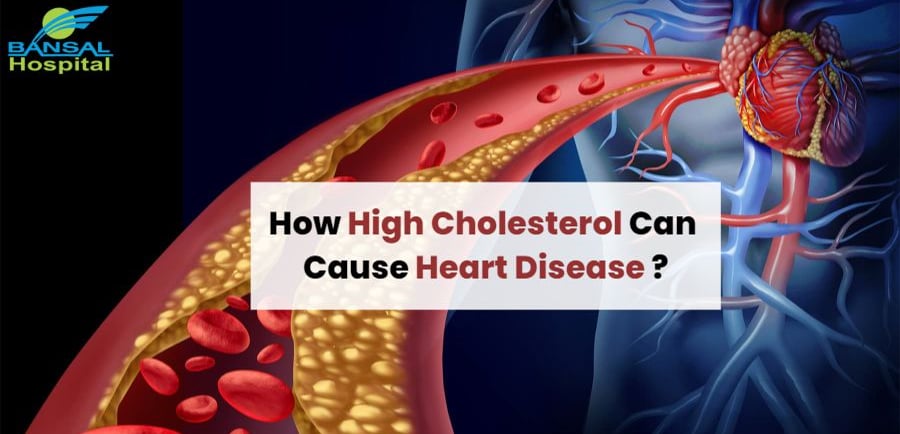Heart Attack: What are the Risk Factors for Someone with High Cholesterol Levels?
Blog post description.
8/28/20254 min read


Heart Attack: What are the Risk Factors for Someone with High Cholesterol Levels?
Great question! High cholesterol is one of the major risk factors for heart disease and heart attacks, but it often works in combination with other factors. Here is a breakdown of the main risk factors for someone with high cholesterol:
1. Non-Modifiable Risk Factors
Age: Risk increases as you get older.
Sex: Men are generally at higher risk at a younger age; women’s risk increases after menopause.
Family history: A family history of early heart disease (before age 55 in men, 65 in women) increases risk.
Genetics: Conditions like familial hypercholesterolemia can cause very high cholesterol from a young age.
2. Modifiable Risk Factors
High LDL ("bad") cholesterol: Contributes to plaque buildup in arteries.
Low HDL ("good") cholesterol: Less protective against heart disease.
High blood pressure: Increases strain on the heart and arteries.
Smoking: Damages blood vessels and lowers HDL cholesterol.
Diabetes or insulin resistance: Raises risk significantly, especially when combined with high cholesterol.
Obesity: Especially abdominal obesity, which is linked to metabolic syndrome.
Poor diet: Diets high in saturated fats, trans fats, and processed foods worsen cholesterol levels.
Sedentary lifestyle: Lack of exercise contributes to obesity and poor cholesterol balance.
Excessive alcohol: Can raise triglycerides and blood pressure.
Chronic stress: May indirectly increase risk through blood pressure, diet, and lifestyle factors.
3. Other Contributing Factors
Metabolic syndrome: A cluster of conditions (high blood pressure, high blood sugar, excess abdominal fat, abnormal cholesterol levels).
Chronic kidney disease: Increases cardiovascular risk.
Inflammation: Conditions like rheumatoid arthritis or lupus can raise risk.
✅ Key takeaway: Having high cholesterol alone increases your risk, but the danger rises significantly if it is combined with other factors like smoking, high blood pressure, diabetes, or family history.
Here is a clear overview of lifestyle changes and treatment options that can reduce heart attack risk if you have high cholesterol:
🥦 Lifestyle Changes
These are often the first line of defense and can make a big difference:
1. Heart-Healthy Diet
· Focus on fruits, vegetables, whole grains, legumes, nuts, and seeds.
· Choose lean proteins like fish and skinless poultry.
· Limit saturated fats (red meat, full-fat dairy) and avoid trans fats (processed/packaged foods).
· Use healthy fats (olive oil, avocado, fatty fish).
· Increase soluble fiber (oats, beans, lentils, apples) to help lower LDL.
2. Regular Physical Activity
· Aim for at least 150 minutes of moderate exercise (like brisk walking) or 75 minutes of vigorous activity weekly.
· Exercise helps raise HDL (“good”) cholesterol and improve overall heart health.
3. Weight Management
· Even modest weight loss (5–10% of body weight) can improve cholesterol, blood pressure, and blood sugar control.
4. Quit Smoking
· Improves HDL cholesterol and reduces overall cardiovascular risk almost immediately.
5. Limit Alcohol
· If you drink, do so in moderation (up to 1 drink/day for women, 2/day for men). Excess alcohol raises triglycerides and blood pressure.
6. Manage Stress
· Techniques like mindfulness, meditation, or yoga can help reduce indirect risks.
💊 Medical Treatments
If lifestyle changes are not enough, doctors may prescribe medications:
1. Statins (e.g., atorvastatin, rosuvastatin)
· The most common drugs; lower LDL cholesterol and reduce heart attack risk.
2. Ezetimibe
· Lowers cholesterol absorption in the intestines.
3. PCSK9 Inhibitors (e.g., evolocumab, alirocumab)
· Injectable drugs for people with very high cholesterol or genetic conditions.
4. Bile Acid Sequestrants
· Bind bile acids in the intestine to lower cholesterol.
5. Fibrates or Omega-3s
· Target high triglycerides more than LDL cholesterol.
🧾 Key Takeaway
Lifestyle changes are the foundation and can sometimes be enough on their own.
Medications may be added if cholesterol levels remain high or if you have other risk factors (like diabetes, high blood pressure, or prior heart disease).
Regular checkups and blood tests are important to track progress and adjust treatment.
Here is a sample daily routine designed to support healthy cholesterol levels and lower heart attack risk. Of course, it should be personalized with your doctor or a dietitian, but this gives a strong starting framework:
🌅 Morning
Wake up & hydrate: Start with a glass of water.
Light movement: 5–10 minutes of stretching or yoga to get blood flowing.
Breakfast:
Oatmeal topped with berries, chia seeds, and a sprinkle of walnuts or almonds.
Green tea or black coffee (skip added sugars and creamers).
Why: Oats provide soluble fiber, nuts add healthy fats, and berries are rich in antioxidants.
🕘 Mid-Morning
Snack (optional): An apple or pear with a spoonful of natural almond butter.
Movement break: Stand, walk, or do light stretches for 5 minutes if working at a desk.
🍴 Lunch
Meal idea:
Grilled salmon or lentil salad.
Large portion of leafy greens (spinach, kale, arugula) with olive oil + lemon dressing.
Quinoa or brown rice on the side.
Why: Salmon provides omega-3 fatty acids; greens and whole grains add fiber and nutrients.
🕑 Afternoon
Activity: 20–30 min brisk walk, cycling, or light jog (helps raise HDL cholesterol).
Snack: Carrot sticks, cucumber slices, or hummus with whole-grain crackers.
🍽 Dinner
Meal idea:
Skinless chicken breast, tofu, or beans for protein.
Roasted vegetables (broccoli, Brussels sprouts, sweet potatoes).
Small portion of whole-grain pasta or barley.
Why: Balanced protein, fiber-rich vegetables, and complex carbs keep blood sugar and cholesterol stable.
🌙 Evening
Wind down: Light stretching, meditation, or deep breathing to reduce stress.
Snack (if needed): A handful of unsalted nuts or a small bowl of berries.
Sleep: Aim for 7–9 hours — poor sleep is linked to higher heart risk.
📌 Daily Habits Checklist
✅ Drink plenty of water (6–8 cups).
✅ Avoid processed foods, sugary drinks, and fried foods.
✅ Limit red meat and full-fat dairy.
✅ Get at least 30 minutes of moderate activity most days.
✅ Avoid smoking and keep alcohol minimal.